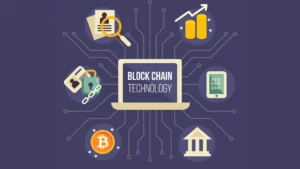Recently, in a case dealing with property laws, the Supreme Court called for a fundamental change in the country’s existing system of keeping a track of land transactions, suggesting the use of Blockchain technology to make it more secure and transparent.
Interesting, right? Let’s discuss this in detail!
Case name– Samiullah Vs The State of Bihar & Ors
Date of judgement– November 7, 2025
Corum– Justice P.S. Narasimha and Justice Joymalya Bagchi
Facts of the case-
The Court was dealing with a civil appeal arising out of the Patna High Court. The appeal challenges two new sub-rules of the Bihar Registration Rules- Rule 19(xvii) and (xviii), which allowed registration officers to refuse property registration if sellers failed to produce mutation papers.
You might be thinking, What are mutation papers? Just as a sale deed proves that you are the new owner of the land, similarly, mutation papers show who owns and pays property tax on a particular piece of land. To get utilities like water and electricity, you need these mutation papers.
So the problem that arose in this case was that even if a person legally owned a land, they could not register a sale deed unless their name appeared in the mutation register. Now, this problem has become particularly serious in Bihar, since most of the mutation records are outdated or incomplete.
Petitioner’s argument-
The petitioner’s side pointed out that there is a loophole in the system since mutation records often bear names of the ancestors who died decades ago, and the updating process is too slow to change it within a reasonable amount of time.
Also, they raised a point stating that mutation records are merely for administrative purposes, so making it mandatory before registering a sale deed altogether stops people from selling the property itself.
Respondent’s argument-
The respondent here, the Bihar Government, claimed that its Bihar Mutation Act, 2011, allowed online applications for mutation within 21 days and that the rule was meant to promote clean land transactions.
Court’s ruling-
The court recognised that the current process of registering immovable property is slow, stagnant, and time-consuming. The court asked the Government to take the lead in constituting a body with the participation of states to examine the given issue.
The bench requested the Law Commission of India to prepare a detailed report on this issue after consultation with the central and state governments.
The court held that the Bihar sub-rules were ultra vires and arbitrary, preventing effective transfer of property. It pointed out that registration and ownership are two different things, and registration cannot demand mutation papers before allowing the sale to be registered.
Last but not least, the court suggested the introduction of new laws for incorporating Blockchain technology with necessary safeguards.
Comment down your thoughts on this recent Apex Court ruling! We would love to hear from you.



4 Comments
How realistic is it for states like Bihar with fragmented records and low digital infrastructure to transition to blockchain based land registries?
Thank you for sharing your opinion. Do check out our other articles!
The Supreme Court suggested using Blockchain to link property registration and mutation for better transparency, but in a state like Bihar where digital systems and land records are still so outdated, is it really possible right now, or is it just an idealistic thought that sounds good on paper?
Thank you for sharing your opinion. Do check out our other articles!